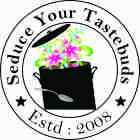When the body is not getting enough nutrition, it sends some signals or rather warning signs that we must heed to and take immediate action.
The symptoms of protein deficiency can be physiological, physical and mental.
The usual ones are
1. Edema – fluid retention / collection of fluid beneath the skin.
2. Weight loss
3. Thinning of hair/ reduced pigmentation of hair on the scalp or body /hair loss
4. Ridges in the nails
5. Changes in the skin – reduced pigmentation,rashes,dryness
6. Muscle weakness / cramps /soreness
7. Cuts / wounds/bruises heal slowly
8. More prone to bed sores / skin ulcers
9. General weakness , no willingness to work
10. Fainting
11. Difficulty in falling asleep
12. Headache
13. Nausea/stomach pain
14. Moodiness
15. Severe depression
16. Anxiety
Note:
The symptoms listed above can be seen in other disease conditions also.In case these symptoms are present ,it is wise to see a physician to evaluate the situation because they need immediate attention no matter what caused thesem.
A simple blood test is sufficient to determine if one suffers from protein deficiency. There are various modes to get the protein into the system, starting from high protein oral diet, supplements to intra-venous methods depending on the severity of the situation.
Now coming to the deficiency diseases,it often strikes children and here is what happens.
Protein deficiency is aggravated when there is war,famine or over population,ignorance about nutrition.It is the cause of ill health and death in the developing countries.When protein and calories are deficient in the diet it leads to a condition called -Protein energy malnutrition.
When protein energy malnutrition hits the children it lead to
Kwashiokor;
Marasmus
In Kwashiokar,the child is characterized with edema,irritability,anorexia,skin ulcers and enlarged liver,distention[swelling] of the abdomen,thinning hair,loss of teeth.
Recent studies suggest that a deficiency of antioxidants and micro-nutrients coupled with protein deficiency is the cause for kwashiokar.
Until the baby is on breast milk,mother’s milk provides the proteins.When the child is weaned the diet lacks the necessary amounts of proteins and in the risk groups,this is seen when the baby is put on a high carbohydrate diet[plenty of starchy foods] immediately upon weaning.The chance of Kwashiokar increases after the age of 18 months of life.
This condition can be treated by placing the child on the appropriate diet after proper evaluation but the damage done to the system will have a long term effect on the physical and mental well being.
In marasmus,the child looks emaciated and there is severe loss of weight,dry skin,loose skin folds.The child may be fretful,irritable and voraciously hungry.This condition occurs prior to age1.
Though the recovery is better when compared to kwashiokar,the steps have to be taken at the earliest.Apart from correcting the deficiency ,the complications of maramus like infections,dehydration also have to be dealt with.
If a child is suffering from marasmus for a long time before it can get help,it reaches the point of no return as the body is degraded to such a level that it cannot handle even a small amount of protein and ultimately leads to the death of the child.
Protein deficiency in adults may be due to poverty or unguided diets.Adults may also be prone to protein deficiency if they do not take additional protein when they are recovering from trauma/ illness/surgery.
So if at any time you want to make a drastic change in the diet or recovering form illness, pregnant/nursing be sure to consult a dietitian /physician because increase/decrease in protein will do more harm than good and taking the right quantity of proteins is very essential for the overall well being of the body.


Dear Padmajha
Very informative and well written as usual for you.
Will be looking forward to more particularly on micro nutrient and anti oxidants,
have a nice day
Thankyou for the kind words Ushnish.I will definately be writing on micro nutrients and anti oxidants and you can look forward to reading about them in the future posts